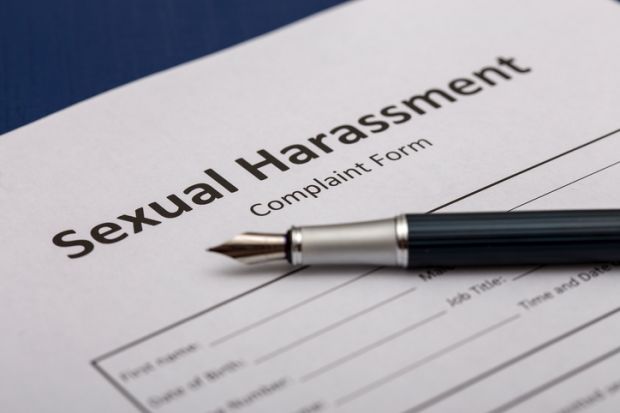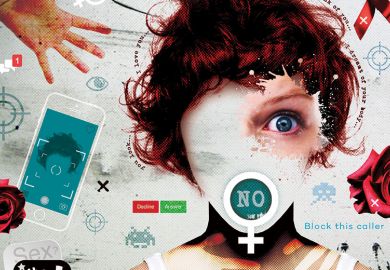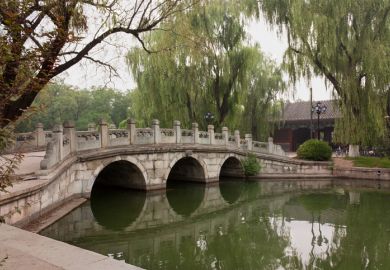In a corrupt university system such as Ukraine’s, sexual harassment is always likely to be a significant problem. Faculty and staff are involved in exploiting students in many different ways. Admissions, higher grades, examinations, term papers and diplomas may all be bought with bribes; indeed, bribes are often demanded as the price of “fair” treatment. If students cannot pay with money, sexual favours may be offered – or extorted – instead.
The cost of corruption in academia is high, and the damage inflicted by sexual harassment may be high as well. In one alleged case that took place at Berdichev Medical College, a female student took her own life. The alleged perpetrator was the institution’s director, although the college has categorically denied this.
Despite the prominence of the issue of sexual harassment in the wake of the #MeToo movement, this is one of just a handful of media reports so far on its manifestation in Ukraine’s universities. Most recently, last winter and spring saw Ukraine’s academic flagship, Taras Shevchenko National University of Kyiv, dealing with public accusations by several female students at its Centre for Biology and Medicine that a faculty member had sexually harassed them during a summer field trip.
As a result of the widespread publicity that the incident gained, the university administration launched an investigation, on the basis of which it fired the accused faculty member. However, it is noteworthy that stories of sexual harassment during summer trips had been commonplace for many years before students decided to speak up in public.
In cases of sexual harassment, as in cases of bribery, university administrators usually prefer to downplay the incidents to save face and preserve institutional reputation. By doing so, however, they protect the predators.
Another factor that minimises revelations is the difficulty of defining exactly what constitutes sexual harassment. A survey of Ukrainian law students conducted in 2015, for instance, shows that they struggle to draw the line between acceptable and unacceptable conduct. Behaviour that in most developed countries would be considered outright sexual harassment was deemed by most students to be normal, traditional conduct.
Of course, it is not only students who suffer. Sexual harassment is less about sex than it is about abusing power: a trait all too common at every level of Ukrainian higher education. And while the focus of attention has been on female students being sexually harassed by male academics and administrators, it is worth keeping in mind that male students can also be victims; in Ukraine, female bosses have been known to pressure male subordinates into personal relationships, for instance.
One university, Kyiv Mohyla Academy, has already implemented anti-sexual harassment measures. Specifically, it has introduced drop boxes into which students can post reports of sexual harassment. The effectiveness of such a measure remains unknown, however. Similar drop boxes were set up in some universities across the country to report academic corruption, but they have not solved that problem.
It is clear that campus sexual harassment will never be tackled properly until more Ukrainian universities take up the challenge – or the Ministry of Education and Science imposes measures on them. These could include commissions and protocols for investigating sexual harassment, and perhaps setting up an anonymous hotline for victims to report incidents. In addition, faculty and administrators suspected of unethical, abusive and inappropriate behaviour should be suspended while they are investigated to prevent them from influencing the accuser and witnesses – or even, in the case of top administrators, the investigating commission.
Ukraine’s newly elected president, Volodymyr Zelensky, just might have the necessary political will to implement such changes – not only in universities but across the country’s workplaces. Zelensky is only 41 years old. He does not have a Communist Party background or affiliation. He is free of the totalitarian tradition of sweeping sensitive gender-related problems under the carpet. He is also free of the right-wing nationalism that gives gender issues short shrift.
There is some hope that things may finally start to move in the right direction.
Ararat L. Osipian is the Alexander Mirtchev visiting professor and scholar at the Schar School of Policy and Government, George Mason University, a fellow of the Institute of International Education and a fellow of the New University in Exile Consortium.
POSTSCRIPT:
Print headline: We need a MeToo moment
Register to continue
Why register?
- Registration is free and only takes a moment
- Once registered, you can read 3 articles a month
- Sign up for our newsletter
Subscribe
Or subscribe for unlimited access to:
- Unlimited access to news, views, insights & reviews
- Digital editions
- Digital access to THE’s university and college rankings analysis
Already registered or a current subscriber?







